Episodes
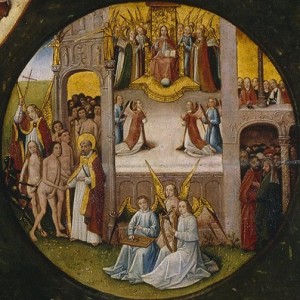
Tuesday Dec 04, 2018
Heaven, Hell, and Purgatory in Thomas Aquinas with Dr. Kent Lasnoski
Tuesday Dec 04, 2018
Tuesday Dec 04, 2018
Each Sunday at Mass we repeat the same words: “ I look forward to the resurrection of the dead and the life of the world to come.” We also remind ourselves that Jesus is coming again, most of us would rather not think too deeply about death and with it about Hell, Purgatory, and Heaven. But how often do we take the time to consider what exactly that means?
St. Thomas Aquinas wrote his Compendium Theologiea during the last two years of his life, completing it in 1273. Unlike his Summa Theologiae, theology for theologians, Thomas wrote the Compendium to help laypeople to love God more by coming to know Him better. That is, it’s theology for everyone seeking to know, love, and serve God through faith in Jesus Christ.
During the waning days of this fall semester, Wyoming Catholic College juniors under Dr. Kent Lasnoski’s tutelage have been considering what St. Thomas had to say about judgment, Hell, Purgatory, and Heaven in the Compendium.
Dr. Lasnoski is our guest this week on The After Dinner Scholar.
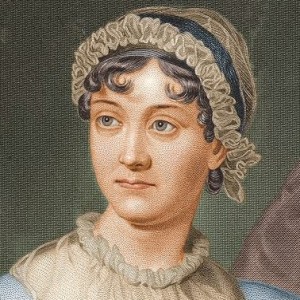
Tuesday Nov 27, 2018
Virtue, Happy Endings, and the Novels of Jane Austen with Dr. Tiffany Shubert
Tuesday Nov 27, 2018
Tuesday Nov 27, 2018
Happy endings have been standard fare in literature for millennia. Odysseus' trials finally bring him home to Ithika. Dante journeys through Hell to get there, but eventually he sees the Beatific Vision.
Later in literary history, Emma Woodhouse in Jane Austen's Emma and Elizabeth Bennett in her Pride and Prejudice suffer a variety of travails, failures, and setbacks, but in the end, they both fall in love, marry well, and their happiness is complete.
Unrealistic? Silly? Little more than one of those cheap romance novels for sale in airports? Or do happy endings in Jane Austen tell us something crucial about human nature, human desire, and the human condition?
Dr. Tiffany Shubert teaches humanities and the Trivium here at Wyoming Catholic College. Among her academic interests are the happy ending and the novels of Jane Austen. Dr. Shubert is our guest this week on The After Dinner Scholar.
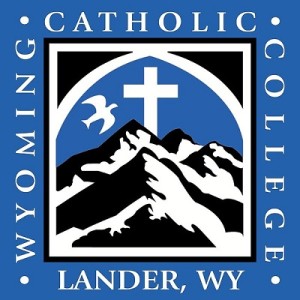
Tuesday Nov 20, 2018
Accreditation!: The End of a Long Journey with Dr. Glenn Arbery
Tuesday Nov 20, 2018
Tuesday Nov 20, 2018
Last week, Wyoming Catholic College President Glenn Arbery received the long awaited and prayed for phone call from the Higher Learning Commission (HLC). Wyoming Catholic College is now fully accredited—and just in time for Thanksgiving.
That means our college—its mission, its education, its student life, its faculty, its leadership, its business practices, and its financial stability—have met or exceeded the standards set by the Higher Learning Commission. That is, we have passed American higher education’s quality control system.
To tell us some of the history of the process and the benefits to Wyoming Catholic College and our students, we’re joined this week President Glenn Arbery.
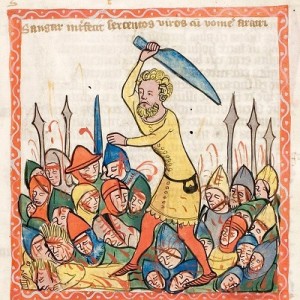
Tuesday Nov 13, 2018
Tuesday Nov 13, 2018
“And all that generation also were gathered to their fathers; and there arose another generation after them, who did not know the Lord or the work which he had done for Israel.” (Judges 2:10)
When Israel entered the Promised Land, Joshua was the clear commander and leader of the people. Then he and his generation died. It was a generation that, as a friend used to say, forgot to make disciples. The memory of the Exodus and of the Lord God faded and, well, disaster was the result.
Enemies came to oppress Israel. In their pain they called out to the Lord who, because he is faithful, heard and answered by sending a judge to deliver them. Then, when the judge died, the cycle began all over again.
Dr. Jeremy Holmes and I have been team teaching freshman theology, a course that surveys the history of Israel in the Old Testament. Our classes that reflected on the judges and the subsequent anointing of a king over Israel got us thinking. Dr. Holmes is our guest on The After Dinner Scholar.
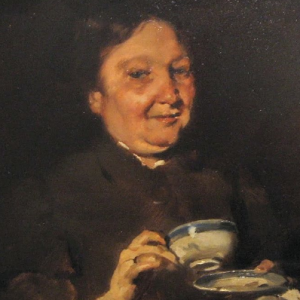
Tuesday Nov 06, 2018
Science in a Cup of Tea with Dr. Scott Olsson
Tuesday Nov 06, 2018
Tuesday Nov 06, 2018
“This cup of tea,” the lady claimed, “was made wrong. You put the tea in first and then the milk rather than putting the milk in before the tea. I could taste the difference immediately.”
Could she really and, if so, how would we know? How do we use experimentation to test her claim that she tastes the difference between a cup where milk was added to tea and one where tea was added to milk? The story is all about the scientific method.
While the answer may seem straightforward enough, it turns out that any scientific experiment is fraught with complications and difficulties. Dr. Scott Olsson’s students have been struggling with some of those complications and difficulties in this the first semester of their junior year. This week on the After Dinner Scholar, Dr. Olsson gives us a glimpse in the questions.
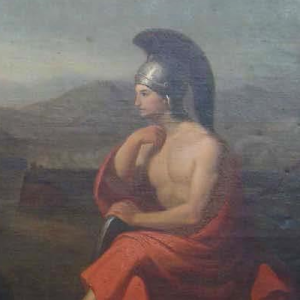
Tuesday Oct 30, 2018
Telemachus and the Birth of Wonder with Dr. Jason Baxter
Tuesday Oct 30, 2018
Tuesday Oct 30, 2018
"Tell me, Muse, of the man of many ways, who was driven / far journeys, after he sacked Troy's sacred citadel."
Those lines open Homer's epic poem The Odyssey. The story, they tell us, is about Odysseus, a great hero of the Trojan War. It's about his journeys and trials. Bracing stuff and we can't wait to get started. But Homer doesn't start. Not yet.
Instead after the exciting preview, the first four books of The Odyssey are not about the heroic Odysseus, but about his son, Telemachus who Dr. Jason Baxter describes as "adolescent, wimpy, insecure." That is, he's the polar opposite of his famous dad.
Yet it was to Telemachus that Dr. Baxter pointed to encourage our students here at Wyoming Catholic College. Dr. Baxter is our guest this week.
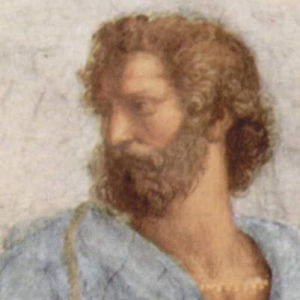
Tuesday Oct 23, 2018
Happiness and the Good in Aristotle's Nichomachean Ethics with Dr. Michael Bolin
Tuesday Oct 23, 2018
Tuesday Oct 23, 2018
“What is the highest of all practical goods?” asked Aristotle at the beginning of The Nichomachean Ethics. “Well,” he went on, “so far as the name goes, there is pretty general agreement. ‘It is happiness’.” Aristotle then continued, “But when it comes to saying in what happiness consists, opinions differ.” As the Ray Conniff singers sang back in 1966, “Happiness is different things to different people.” And within our culture even the most irreligious people would answer, Amen.
But is happiness simply different things to different people? Or are their common threads? Can we explore happiness and human nature to learn what happiness is apart from everyone’s subjective opinion?
For Aristotle—and with him the Western tradition until just recently—the answer is, Yes. We can discover what happiness is, a quest he took up in The Nichomachean Ethics.
Dr. Michael Bolin has been teaching Aristotle’s Ethics to Wyoming Catholic College juniors this semester. Dr. Bolin is our guest this week on The After Dinner Scholar.
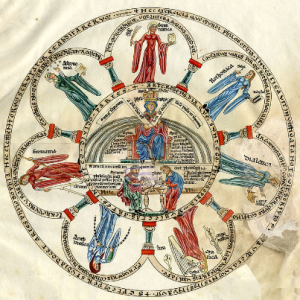
Tuesday Oct 16, 2018
Tuesday Oct 16, 2018
The purpose of education, stated on government websites, school websites, university websites, and education policy and reform websites was pretty much the same: "to better prepare students to compete in a global economy." That is, the purpose of education is almost universally believed to be purely utilitarian. One way or another, it’s a matter of vocational training. The old days of Latin, Greek, the classics, poetry, even history and literature are behind us now. Today computer science, technology, economics, accounting and engineering rule. After all, we have a global economy to run.
The purpose of education, however, has been debated since ancient times. Contrary to a utilitarian education Seneca who lived 4 BC to AD 64 wrote, “I respect no study, and deem no study good, which results in money-making.” And don’t forget that at the time, Rome had a global economy to run.
Dr. Tiffany Schubert joined the Wyoming Catholic College faculty this year to teach the heart of the liberal arts: the Trivium. Dr. Schubert has researched and taught on the nature of a liberal education and is our guest this week on The After Dinner Scholar.
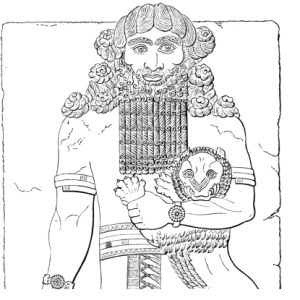
Tuesday Oct 09, 2018
Gods, Monsters, and Heroes: The Epic of Gilgamesh with Prof. Kyle Washut
Tuesday Oct 09, 2018
Tuesday Oct 09, 2018
“When the gods created Gilgamesh,” the ancient text says, “they gave him a perfect body. Shamash the glorious sun [god] endowed him with beauty, Adad the god of the storm endowed him with courage, the great gods made his beauty perfect, surpassing all others, terrifying like a great wild bull. Two thirds they made him god and one third man.”
Every year freshmen at Wyoming Catholic College struggle to find their bearings in the midst of The Epic of Gilgamesh. The epic was composed in Babylon in the mid- to late-second millennium BC. It was something of a founding myth for the Babylonian kings and the parallels between Gilgamesh and the Bible and Gilgamesh and Homer are, to say the least, intriguing.
Professor Kyle Washut has just finished teaching The Epic of Gilgamesh and is anxiously awaiting student papers reflecting on the tale. Prof. Washut is our guest this week on The After Dinner Scholar.
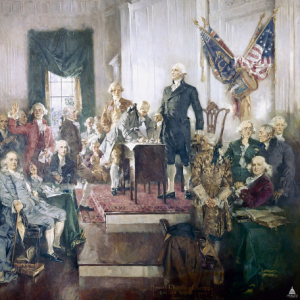
Tuesday Oct 02, 2018
Popular Government and Our Constitution with Dr. Pavlos Papadopoulos
Tuesday Oct 02, 2018
Tuesday Oct 02, 2018
In July 1776, John Adams wrote that the signing of the Declaration of Independence on July 4 should be celebrated, “with Pomp and Parade, with Shews, Games, Sports, Guns, Bells, Bonfires and Illuminations.”
Here in Lander, Wyoming on the Fourth of July, we celebrate in a way that would make John Adams proud. But come September 17, at Wyoming Catholic College, we also celebrate Constitution Day, the date in 1787 on which our Constitution was signed and sent to the states for ratification. Rather than celebrating with “Guns, Bells, Bonfires and Illuminations,” we quietly reflect.
Dr. Pavlos Papadopoulos, Assistant Professor of Humanities, who is new to the college this year, lectured on the topic “Popular Government and Our Constitution” at this year’s Constitution Day celebration. Dr. Papadopoulos is our guest this week on The After Dinner Scholar.

